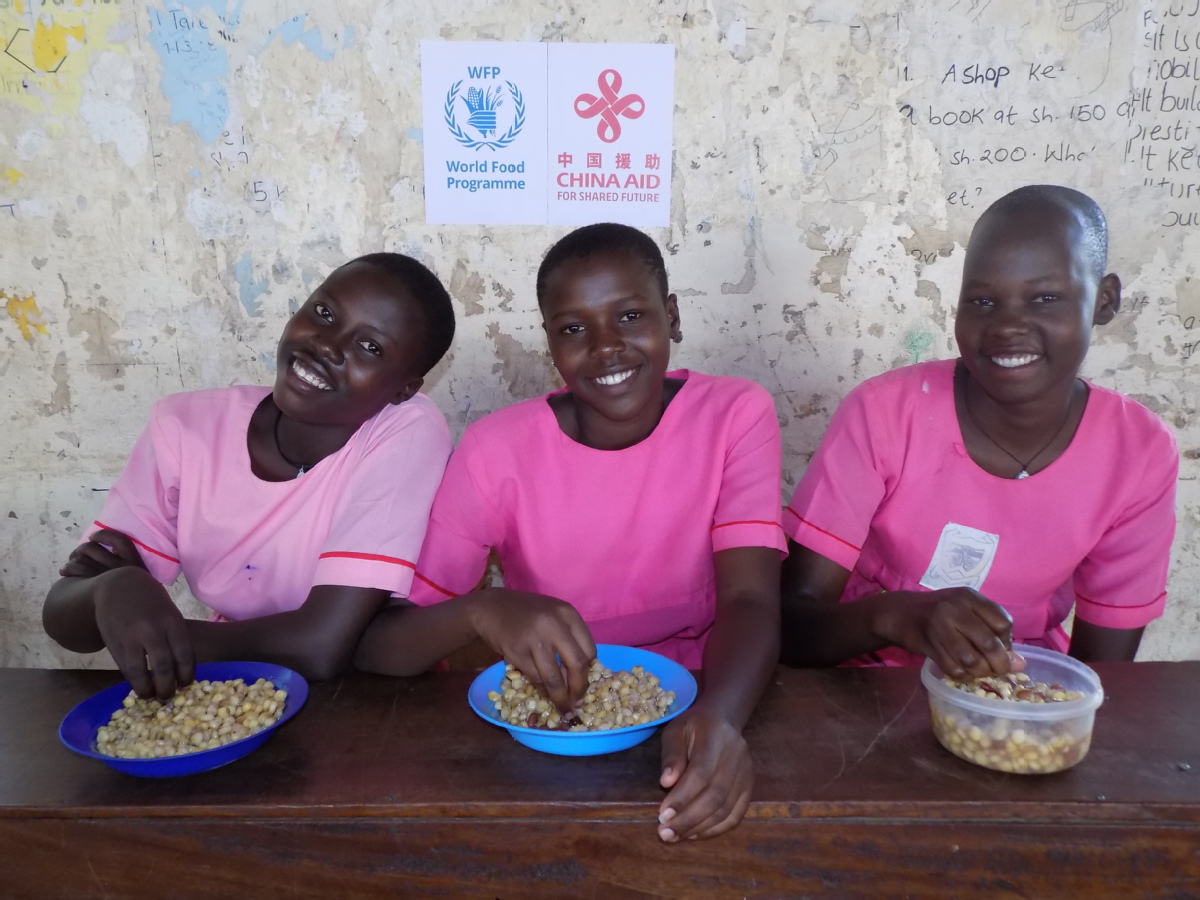Transform food systems for a hunger-free world


As the world marks the 80th anniversary of the United Nations, progress in ending hunger — the world's most solvable problem — is falling behind. For the first time in recent history, two concurrent famines have taken hold in Sudan and Gaza, and the number of people categorized as either in a famine state or on the brink of famine has doubled in just two years. At this pivotal moment, we are reminded that hunger is not inevitable — it is resolvable through the combined actions of communities, governments, multilateral institutions, the private sector and innovators to drive lasting change.
In this shared task, China stands out as a vital development partner, innovator, and catalyst for global food systems transformation, offering valuable insights for other countries in the Global South to achieve rural transformation and build long-term food security.
Worldwide, the prevalence of food insecurity and malnutrition remains alarmingly high — driven by conflict, natural disasters, extreme weather events and economic instability. The latest data from the United Nations World Food Programme estimates that at least 319 million people are facing acute levels of food insecurity — meaning that their lack of access to food puts their lives or livelihoods in immediate danger. At the same time, more than 673 million people endure chronic food insecurity — meaning that they are unable to consume enough food over an extended period to maintain a normal, active and healthy life. These two facts demonstrate the failure of the current global food system to provide healthy, nutritious food for all. This is a reality underscoring the urgency to not only respond to immediate needs but also tackle the root causes of hunger through systemic transformation.
The pathway to ending hunger lies in transforming our food systems and the way we produce, distribute and consume food. This means investing in climate-smart agriculture, reducing food loss and waste, and strengthening value chains that prioritize nutrition and empower smallholder farmers. It also requires harnessing technology and innovation, scaling up proven solutions, and aligning public and private investments to build systems that can withstand future crises.
Changing our food systems — the network needed to produce and transform food — is the key to unlocking opportunity, stability and hope for those who need it the most. Making this vision a reality requires strengthening our collective cooperation — because lasting peace and sustainable development can only be built through shared commitment and responsibility.
Forty-six years ago, China invited WFP to support it in the national fight against hunger. At that time, one-in-three people in the country faced food shortages. Farmers struggled to grow enough to meet basic needs. WFP stood alongside communities across China, implementing solutions to boost local agriculture and harness technology and expertise to drive rural transformation. From 1979 to 2005, WFP operated traditional aid operations reaching more than 30 million people with food assistance, planting more than 540 million trees, and building more than 78,000 kilometers of irrigation canals. In project areas, grain production doubled and per capita income tripled. In total, WFP provided more than $1 billion in aid, which China complemented with $1.2 billion in matching funds.
Decades later, China has transformed its food systems, and lifted about 800 million rural people out of extreme poverty. With less than one-tenth of the world's arable land, farmers produce food to feed one-fifth of the world's population. This success is rooted in sound agricultural development, backed by sustained investment in modernization, and a strong commitment to inclusive development. Today, China has many lessons, innovations and know-how to offer other developing countries facing these challenges.
This is why WFP established the Centre of Excellence for Rural Transformation in Beijing in 2016. This year's World Food Day underscores the "hand in hand" spirit of cooperation, a principle the center embodies by fostering South-South and triangular cooperation. For nearly a decade, the center has shared China's food systems experience with others seeking to develop their own accessible, sustainable strategies. The center enables farmers, practitioners, and policymakers from more than 90 developing countries to exchange practical solutions on food security, nutrition, and rural development. This cooperation is rooted in China's and other developing countries' willingness to share proven solutions, and knowledge.
For example, the center implemented a three-year Rice Value Chain Development Project in Côte d'Ivoire and Guinea. With the support of Chinese public and private partners, as well as the Gates Foundation, the development project applied China's "small yet smart" approach to grain storage and processing. The project established local production facilities for local mini-silos, as well as processing lines. This approach addressed critical value-chain infrastructure gaps with impactful results. Productivity increased by up to 40 percent, post-harvest losses were reduced by half, and household incomes grew significantly, strengthening people's resilience and capacity to respond to future shocks.
We have also witnessed the significant impact of projects financially supported by CIDCA and the Global Development and South-South Cooperation Fund on people's food security and nutrition. With China's support, WFP has implemented 57 practical, people-centered projects across 39 countries in Asia, Africa and South America. These initiatives have benefited the lives of more than 10 million people.
As the United Nations turns 80, its founding spirit of collective action remains more vital than ever to end hunger. WFP's journey with China — from supporting its fight against food insecurity to partnering on global solutions — proves that transformation is possible when expertise, innovation, and compassion come together. My hope is that, in the not-so-distant future, World Food Day will actually be a day to celebrate a transformed food system that nourishes everyone with equitable, accessible, affordable, healthful and nutritious meals.
The author is representative and director of the United Nations World Food Programme in China.
The views don't necessarily represent those of China Daily.
If you have a specific expertise, or would like to share your thought about our stories, then send us your writings at opinion@chinadaily.com.cn, and comment@chinadaily.com.cn.


































